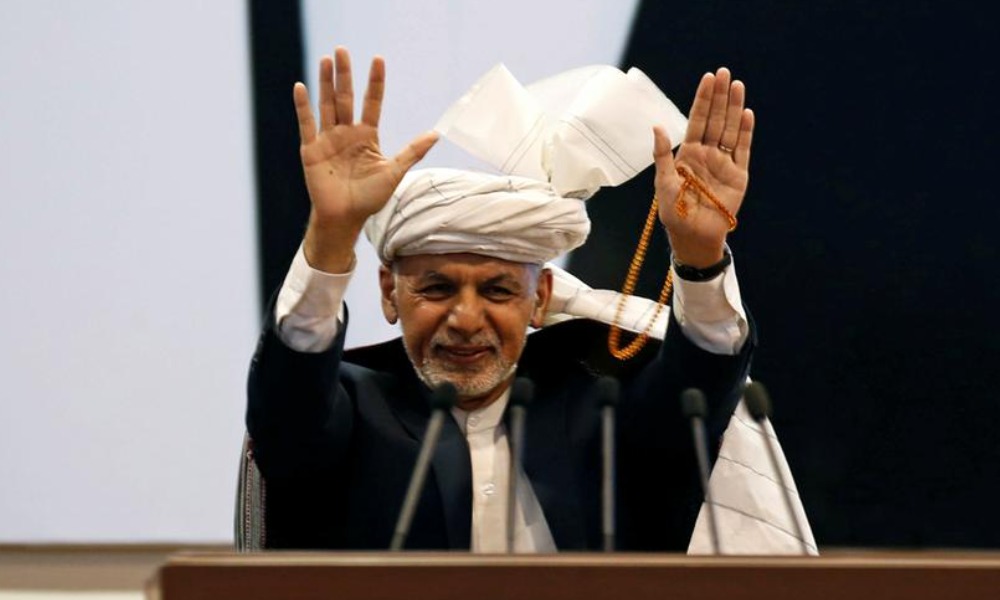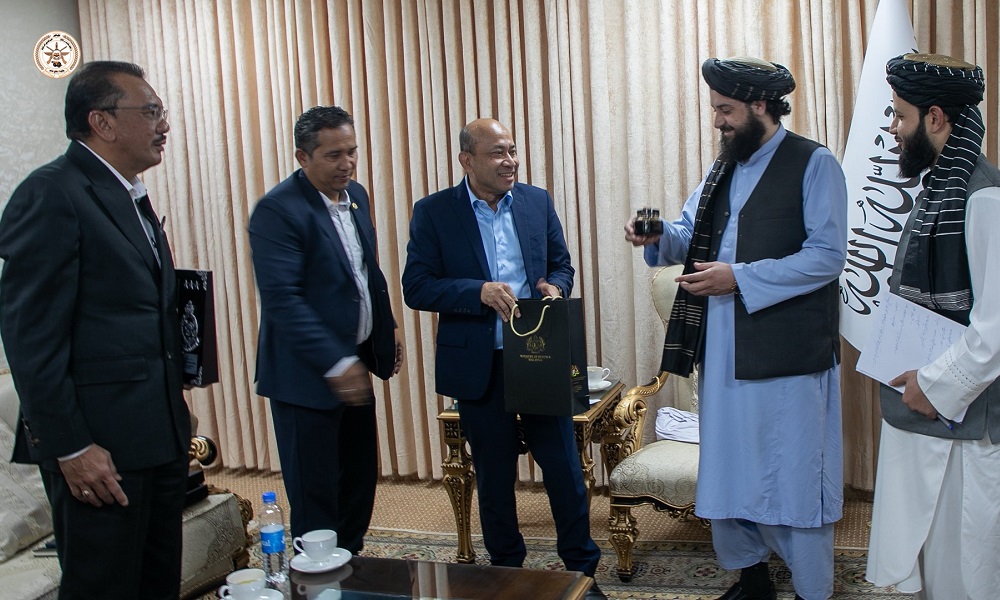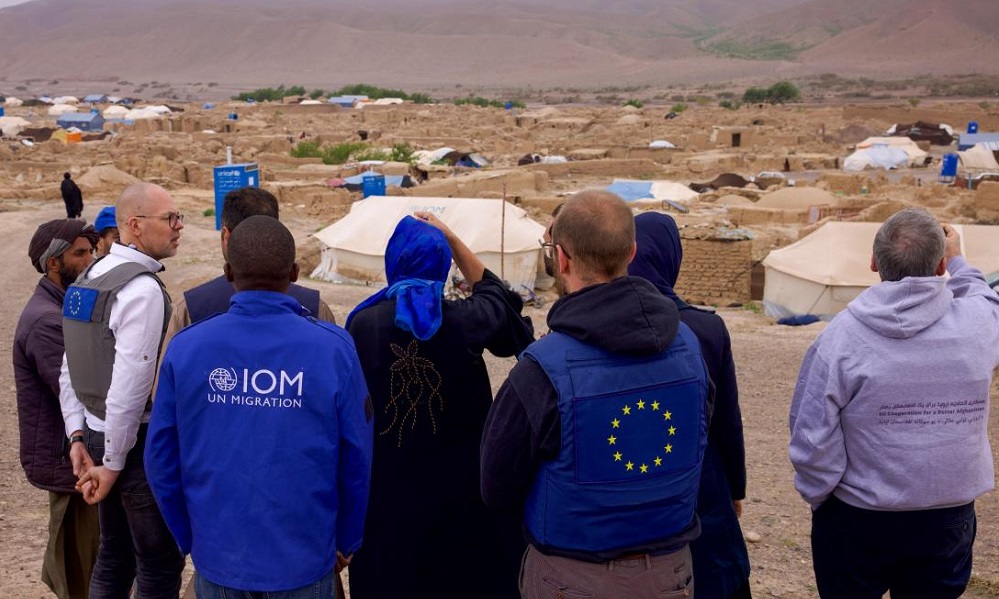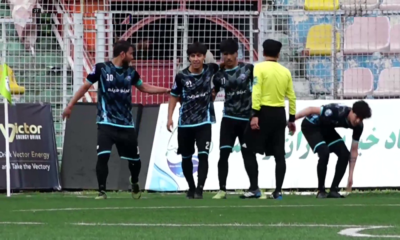Latest News
‘Desperate situation’ for Ghani as his power is undermined: NYT

A senior Afghan military official said this week that if the US pulls out without a political settlement having been reached between government and the Taliban, the country will be in “deep trouble”.
Speaking to the New York Times this week, the security official said: “If the US pulls out, and there is no political agreement, then we are in deep trouble.”
“Militarily, we don’t have much hope,” he said. “If we don’t get something, the Taliban are going to march. It’s going to be a severe battle.”
One Western diplomat in Kabul said the country’s military position is deteriorating. Each day brings news of security force members blown up or gunned down.
“They can’t keep doing that,” said the diplomat, commenting on the steady loss of military strength. “The toll on the government, and the credibility and legitimacy it has, it’s not sustainable.”
The New York Times reported that this comes at a time where President Ashraf Ghani has few remaining allies, the Taliban are gaining militarily and his international supporters are impatient with him and the stumbling peace process.
The article questions how much control Ghani actually has over his country’s future and his own – questions that have, according to the NYT, been largely resolved by politicians, analysts and citizen: Not much!
NYT reports Ghani is dependent on the counsel of a handful of people and is unwilling to even watch television news – also that he is losing allies fast.
This, the NYT reports, spells trouble for a country where a hard-line insurgency has the upper hand militarily, where nearly half the population faces hunger at crisis levels, where the majority of government money comes from donors and where weak governance and widespread corruption are endemic.
This, meanwhile, is all taking place as Washington is preparing to pull out its last remaining troops, “a prospect expected to lead to the medium-term collapse of the Afghan forces they now support,” the report read.
Former National Directorate of Security chief Rahmatullah Nabil told the NYT: “He (Ghani) is in a desperate situation.”
“We’re getting weaker. Security is weak, everything is getting weaker, and the Taliban are taking advantage.”
The NYT reported that many are fed up with what they see as Ghani’s obstinacy in refusing to make concessions to adversaries, or his condescending style and that a recent letter to him from US Secretary of State Antony Blinken was so harsh that even Afghans critical of Ghani found it insulting.
The letter used the phrase “I urge you” three times while Blinken also said “I must also make clear to you, Mr. President … that as our policy process continues in Washington, the United States has not ruled out any option.”
The NYT stated that the unspoken subtext was clear: Your influence is minimal.
Hekmat Khalil Karzai, the head of an Afghan think tank reacted to this and said: “As an Afghan, a sense of humiliation comes over you.”
“But I also feel Ghani deserves it,” Karzai said. “He’s dealing with the kiss of death from his own closest partner.”
This comes as US President Joe Biden continues to “review” the agreement signed with the Taliban in February last year – which stipulates Washington pulls out all its troops by May 1 – a deadline that is just three weeks away.
It also comes amid a flurry of meetings between leaders of countries in the region, of US officials and Afghan politicians.
The key issue currently is the US proposal of an interim government followed by elections – an interim government that would include Taliban participation.
As pointed out by the NYT, such a move could require Ghani to step down – something he has until now repeatedly refused to consider.
Ghani has his own plan, which includes early elections but the NYT states, both Washington’s plan and Ghani’s could fall flat as the Taliban have never said they would agree to elections, nor have they indicated that they would go along with any sort of government plan or be content with power-sharing.
“From what we’re seeing, they want absolute power, and they are waiting to take power by force,” Ghani’s national security adviser, Hamdullah Mohib, said in an interview.
Visions of September 1996, when the Taliban rolled into Kabul virtually unopposed and proceeded to establish their harsh regime, haunt the capital, the NYT stated.
Meanwhile some former officials criticized Ghani as being compelled to micromanage all ministries and departments, including that of military matters.
Karzai said: “He likes that, because he feels he’s the only one [competent to make serious decisions].”
But Mohib called the micromanagement accusation “a huge exaggeration,” saying that the president had not attended a security meeting “in weeks,” adding that “he is aware of the strategic picture.”
When contacted by the NYT for an interview, Ghani’s communications office refused, while a senior aide did not respond to an interview request.
A Western diplomat meanwhile told the NYT that the consequences of Ghani’s isolation is not good for Afghan unity and that these divisions spread from Kabul into the country’s fractious regions, where independent militias and other longstanding power-brokers have either rearmed themselves or are preparing to do so.
One example cited by the NYT is the low-intensity fight between government forces and the militia of a minority militia commander, Alipour, which has been smoldering for months.
The fight was recently fueled by the downing of an Afghan forces helicopter in March by Alipour’s men.
The NYT reported that Ghani and his aides have taken an active role in managing the conflict, to the dismay of the Afghan military.
“This is what we wanted to avoid. We are already stretched,” said a senior Afghan security official. “And here, you want to start another war?”
In conclusion, the NYT article noted that the upcoming talks in Turkey, the Istanbul Summit, could well end up like the recent ones in Moscow and Dushanbe, Tajikistan — with bland communiqués deploring violence and hoping for peace.
The American idea — to substitute new talks in a new locale for the old talks in Qatar that have gone nowhere — is not necessarily a winning bet and that early signs are not promising, with Ghani once again rejecting preliminary American proposals, and the Taliban aggressively noncommittal about the ideas currently on the table, the NYT reported.
Latest News
Tripartite trade meeting held in Kabul to boost regional connectivity

A tripartite meeting between the delegations of Afghanistan, Turkmenistan and Kazakhstan was held in Kabul with the aim of connecting North Asia to South Asia and reducing transit and transportation costs among these three countries, the Ministry of Trade and Commerce said in a statement.
In this meeting, an agreement was reached on the creation of a joint technical committee to continue the talks.
This tripartite meeting was held under the leadership of Nooruddin Azizi, the Acting Minister of Industry and Commerce, Vice President of Turkmenistan and Srik Zhumangarin, the Deputy Prime Minister of Kazakhstan.
Earlier, a bilateral meeting was held between the delegation of the Islamic Emirate and Turkmenistan. The ministry of commerce said the participants of the meeting discussed the construction of a large joint logistics center in Torghondi, the trilateral transit agreement between the IEA, Turkmenistan, and Kazakhstan, the expansion of Afghanistan’s railway, solving issues related to Afghan transit and export goods, and a number of other commercial issues.
Latest News
No destructive groups including Daesh present in Afghanistan: Yaqub Mujahid

Acting Minister of National Defense Mohammad Yaqub Mujahid has said that no destructive groups including Daesh have physical presence in Afghanistan, adding the Islamic Emirate of Afghanistan (IEA) will not allow anyone to pose threat to any country in the region from the Afghan soil.
Mujahid made the remarks in a meeting with a delegation from Malaysia in Kabul on Thursday.
According to a statement released by the Ministry of Defense, Mujahid highlighted Malaysia’s “good treatment” of Afghan refugees and its long-standing relations with Afghanistan, and said that Malaysia is a powerful Islamic country and visits should increase.
He added that with the establishment of the Islamic Emirate, occupation and war ended in Afghanistan, and the country is fully secure.
Based on the statement, the Malaysian delegation called Afghanistan a friendly country and while emphasizing on comprehensive cooperation, it assured that what they have seen in Afghanistan will be shared with the authorities of their country.
Latest News
EU allocates 17 million euros to support Afghans on the move

The European Union signed an agreement worth 17 million euros with the International Organization for Migration (IOM) to improve access to basic services, increased economic opportunities and protection for Afghans on the move and their host communities in Afghanistan.
The needs of women and girls are a particular focus of the programme, EU said in a statement released on Thursday.
The statement noted that from January 2023 until April 2024, over 1.5 million Afghans returned from Pakistan and Iran.
“I am deeply moved by the hardship returnees face when being deported to Afghanistan. In a country suffering from poverty and climate change, and in a city that just saw devastating earthquakes, this truly is a crisis within a crisis.”, said Peteris Ustubs, Director for the Middle East, Asia and Pacific of the European Commission’s Department for International Partnerships during the signing ceremony at the IOM transit centre in Herat.
Raffaella Iodice, EU Chargée d’Affaires a.i. to Afghanistan, added “The solidarity of the Afghan people towards their brothers and sisters is an inspiration. We must assure that communities hosting and helping new arrivals are supported. The partnership with IOM ensures access to essential services and provides protection for Afghan returnees and their host communities. As women and girls can be particularly affected, we make sure that all members of society can benefit”.
“IOM’s continued partnership with the EU has been critical in enabling our teams to reach hundreds of thousands of Afghan returnees and other vulnerable communities in the country”, said IOM Afghanistan Chief of Mission, Maria Moita. “Thanks to this renewed commitment, we will be able to focus on addressing the immense challenges in the areas of return and contribute to reintegration, social cohesion, and longer-term solutions for those communities.”
This additional contribution is part of a 5-year programme that is being implemented across Afghanistan and in four countries in the region. It builds on the EU’s previous support to IOM to improve the wellbeing of Afghans forced to return to the country, EU said.
-

 Latest News3 days ago
Latest News3 days agoRashid Khan named AWCC’s brand ambassador
-

 Regional4 days ago
Regional4 days agoIranian president lands in Pakistan for three-day visit to mend ties
-

 Sport4 days ago
Sport4 days agoKolkata beat Bengaluru by one run in IPL as Kohli fumes at dismissal
-

 Sport5 days ago
Sport5 days agoACL: Aino Mina 3-0 Istiqlal Kabul; Attack Energy 3-0 Khadim
-

 Climate Change4 days ago
Climate Change4 days agoRescuers race to reach those trapped by floods in China’s Guangdong
-

 World3 days ago
World3 days agoMalaysian navy helicopters collide in mid-air, 10 killed
-

 Sport3 days ago
Sport3 days agoJaiswal ton powers Rajasthan to big IPL win
-

 Sport4 days ago
Sport4 days agoMawj Sahil player scores stunning halfway line goal in 1-0 win over Jawanan Wahedi
























